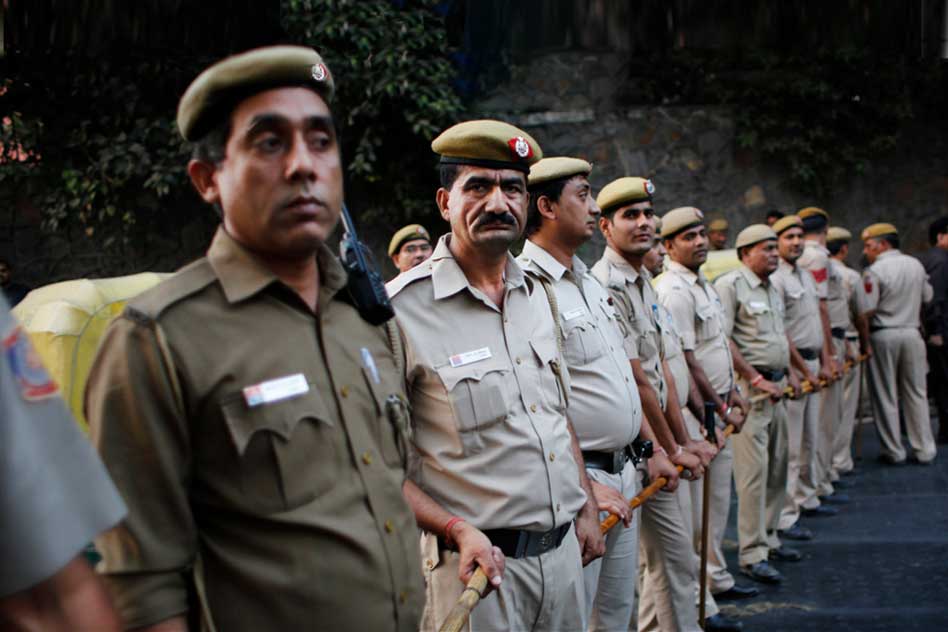Authorities in different countries react differently to cryptocurrencies. Japan, for example, is developing its ownanalogue of SWIFT on the blockchain, and in China to citizensIt is forbidden to trade tokens and participate in ICOs. Soon the enemy camp may replenish with India. They offer to use the crypt for 10 years in prison.
</p>In mid-July, India surprised the crypto communityits tough stance on regulating cryptocurrencies. A committee of experts from various ministries and departments recommended that the Ministry of Finance amend the regulation of cryptocurrencies.
First of all, the group emphasized that the authoritiesshould be open to the introduction of state cryptocurrency, while private ones are proposed to be completely prohibited. Those who use private cryptocurrencies are proposed to be fined up to $3.6 million and punisheda prison term of up to 10 years. It is not yet clear how this can be realized in real life. However, the main message is quite obvious.
“You can ban anything. The only question is: how to monitor compliance with the ban? In the case of cryptocurrencies, this is very difficult, so this ban, in my opinion, is a kind of precautionary procedure for those who have just started to get acquainted with cryptocurrencies. Others can easily get around it, ”says cryptocurrency expert Vadim Popov.
The authorities have not yet made a final decision, but it is possible that the ban will be imposed very soon. Moreover, Indian officials have not liked cryptocurrencies for a long time.
India vs cryptocurrencies

Images: BitNews
According to the expert committee, the main danger of private cryptocurrencies is that they have recently appeared"Like mushrooms after the rain". Mostly coins were issued abroad, but this did not stop Indian citizens from investing in them.
Moreover, all such cryptocurrencies are issuedprivate companies or individuals, which, according to experts, is another threat. In the end, private companies and individuals do not have the right to issue money, which means that their cryptocurrencies cannot replace fiat currency. Therefore, the group recommends banning all cryptocurrencies, except state ones.
“Typically, cryptocurrencies have unknowncreators are not controlled, and very often (at least theoretically) they are decentralized, and therefore carry many risks that are difficult to predict and evaluate. It’s easier to ban everything that does not belong to official financial institutions, ”explains Vadim Popov.
As for the blockchain, according to Indian experts, this is almost manna from heaven, but only subject to state control.
For example, a group recommended to a central bankcountries "to explore the possibility of using distributed registry technologies to create a faster and more secure payment infrastructure, especially for international money transfers." Experts are also convinced that blockchain can help in creating an inexpensive identity verification system. However, development should be carried out by ministries.
“Approval of the creation of state cryptocurrencies -This is a consistent step. In the end, such projects will be controlled and centralized, risks will be less, they are similar to ordinary currencies, so Indian experts are not afraid of them. This is consistent with their economic worldview, ”says Vadim Popov.
The committee submitted its proposals to the government. The government must once again analyze them and make a final decision.
Tough approach

Indian police. : huffpost
India has long been known for its tough approach tocryptocurrency regulation. For example, in early July 2019, Facebook refused to enter its Libra cryptocurrency into the Indian market. The reason for this decision is the local regulation of the crypto industry.
And Facebook is not trying using suchstatements put pressure on the authorities. The Indian cryptosphere is literally suffocating. Back in April 2018, the Reserve Bank of India banned banks from cooperating with the crypto business, including cryptocurrency exchanges. The ban also applies to individuals associated with cryptocurrency.
Financial institutions were given three months to stop all operations with representatives of the crypto industry.
Overall, the Indian Central Bank has long beenHe is a critic of cryptocurrencies. Back in 2013, he warned that tokens carry many risks, and urged citizens to refuse to use them. But the last ban hit the heart of the industry, and many companies had to leave the market.
For example, the Koinex crypto exchange kept afloatuntil June 2019, after which it announced the closure of the business. The reason for this decision was the constant prohibitions of regulators, because of which the cryptocompany could not develop normally in the country.
“We constantly faced payment failuresservices, closing bank accounts and blocking transactions, both related to the trading of digital assets, and not having any relation to them, as in the case of salaries, purchases of equipment or leases. Our team members and our partners had to give explanations to the banks, only because they cooperate with the operator of the digital assets exchange, ”the exchange said in a statement.
And this is not an isolated case. In September 2018, the largest daily cryptocurrency exchange in India, Zebpay, was forced to leave the local market.
“Sanctions against our bank accounts were not givenus and our customers do business normally. At this stage, we cannot find a way out and continue to provide cryptocurrency exchange services, ”the exchange said.
Despite the business implications,the government sent even more mixed signals. In the news, information surfaced that the authorities are either ready to completely ban cryptocurrencies, or they can legalize them, but on very harsh conditions.
At the end of April 2019 The Economic Times even claimed that authorities had prepared a bill to ban cryptocurrencies in the country. Allegedly, the proposal claimed that almost all cryptocurrencies are swindle and fraudulent pyramids, therefore, they do not have a place in the country.
After that, the topic disappeared from the front pages of newspapers and reappeared only with a resonant statement by the committee on the ban on coins, fines and prison sentences.
However, the story does not end there. The proposal of experts does not oblige the government to anything, although most of the committee members work in it. Be that as it may, the attitude of the authorities is understandable. In the end, cryptocurrencies pose a threat to their existence.
“Regulators are afraid of losing their influence,since state funds and assets are, first of all, an instrument of power and influence. The state and its representatives are most afraid of losing such an important lever of control - what if everyone suddenly switches to cryptocurrencies? And then, for example, it will be possible to track taxable processes? This is a challenge for any state machine, and all of them will try in different ways to cope with a new situation for them, ”said Vadim Popov.
Two ways

India is one of the largest economies in the world. And in terms of population, it can soon even go around China. Therefore, if such a market is cut off from cryptocurrencies, many will suffer.
However, even if the authorities decide completelylimit the use of cryptocurrencies, it is unclear how they put it into practice. For example, in China, citizens are prohibited from participating in ICOs. But this does not stop them from investing in cryptocurrency crowdfunding using VPNs and anonymizers.
Be that as it may, limit anything tothe modern digital world is a meaningless idea. Instead, authorities should focus on creating a working environment for development. But Indian officials are unlikely to agree.
</p>





